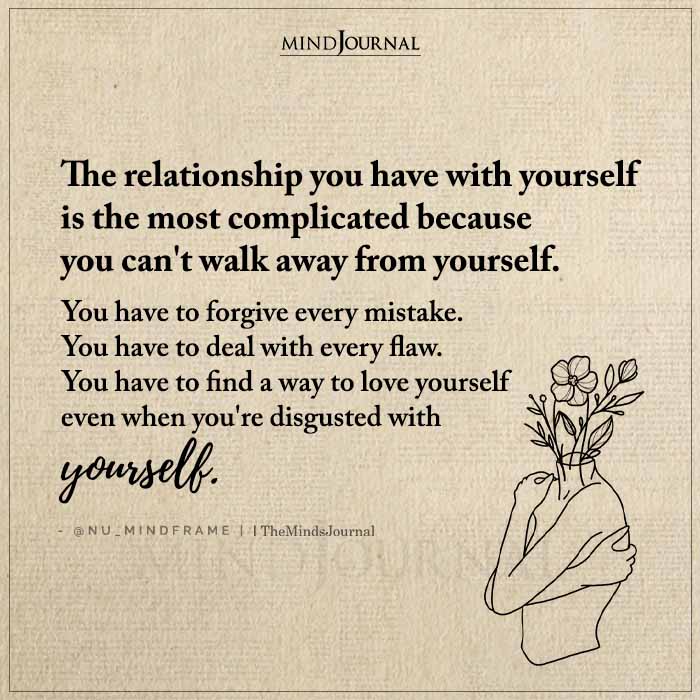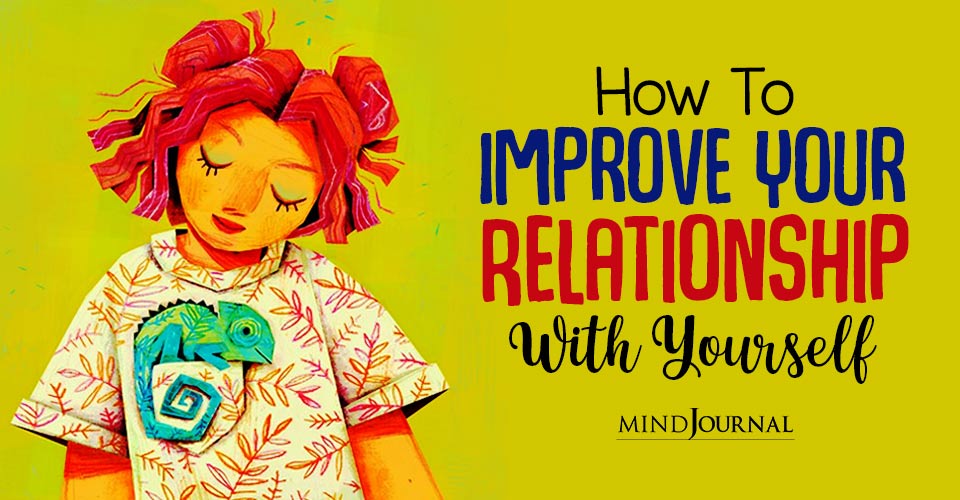Having a healthy relationship with yourself is extremely important when it comes to living a happy and content life. Let’s find out what you can do to improve your relationship with yourself.
Key Points:
- Many people would be glad to work on self-improvement but believe they don’t have enough time for it.
- A change in mindset can help them take advantage of the time they already spend transitioning between locations or tasks.
- These transition times can be used to check in with themselves and gain a better understanding of how they’re feeling.
The thought of adding or removing a habit from your rhythm can be overwhelming. Does your mind have a tendency to create roadblocks or distractions? Perhaps it tries to slyly convince you that the efforts involved in making a change are just too daunting or simply not worth it. You, like many, may hide under the excuse of not having the time necessary to make an adjustment or add something new.
What if you could save the energy involved in carving out more time to implement one more practice or task and instead just utilize what the day already gives you?
Related: How To Improve Your Relationship With Yourself: 8 Steps To Improving Your Self-Esteem
Daily transitions
Consistently progressing on auto-pilot and neglecting to check in on yourself can greatly impact your mental health and your ability to stay grounded in the present. Unfortunately, it becomes more difficult to manage stress levels, process emotions, and pay attention if you consistently feel detached or distracted from the present moment.
Imagine if you worked alongside someone all day long with whom you had a good relationship and then completely avoided them or chose not to touch base in some way. No casual, “Hello, how’s it going?” or asking if they have a busy afternoon ahead.
That scenario sounds a bit awkward, right? You would more than likely initiate some sort of connection at some point, wouldn’t you? Going through a whole day without checking in with yourself is very similar. It’s awkward, and you’ve missed several opportunities to connect.
Throughout each day, you transition several times. You move from one location to the next, one role to the next, and one task to the next. As you navigate through your day, a variety of emotions and thoughts surface, leaving you with the option to engage in them or not. Some are helpful, while others can lead to self-sabotage. Taking note of any patterns and triggers encourages validation and growth rather than avoidance and suppression.
View these shifts as opportunities to pause and connect with yourself. Checking in does not mean that you have to fully engage with an emotion or process it before you move on and reset. It is essentially a scan, a touch base, and a way to build connections with yourself and your environment.
The goals are to gather data and wipe your slate clean. Initially, you might not experience relief, connection, or clarity at all, or feel it for only a few seconds. Keep at it! This practice takes reps… be patient. You are building connections with yourself and identifying behavior and thought patterns with each effort.

What does an effective self-check-in look like?
Ask yourself the following questions and refrain from any judgment or negative self-talk even when your answers are not ideal or are uncomfortable:
- How am I feeling?
- How does my body feel?
- Where are the themes of my thoughts?
- How am I responding to my environment or situation?
- What are my senses experiencing?
Here are some times to practice self-check-ins:
- Before you get out of bed and connect to your devices
- In the shower or as you brush your teeth
- During or after a meal
- During a walk
- Following a workout
- In the car at a red light
- Walking from one room to the next
- Transitioning from one class or meeting to the next
- After a conversation
- While changing your clothes
Related: How To Improve Your Relationship With Yourself: 5 Ways
Start to notice how you move through your day and how often you transition. Which transitions or tasks occur often or even daily? After you’ve identified this, you can begin to build associations with these examples and use them as opportunities to pause and connect.
Self-check-ins create space; they act as a reset. They also provide you with an opportunity to tend to a need or thought or to set a boundary. The practice helps to move you out of an “all-or-nothing” modality of living. You will not only gain self-awareness but simultaneously build confidence, decrease your stress, and increase your level of resilience.
Want to know more about improving your relationship with yourself? Check this video out below!
Written By Leah Marone LCSW Originally Appeared On Psychology Today










Leave a Reply